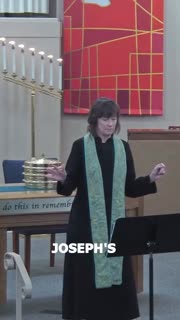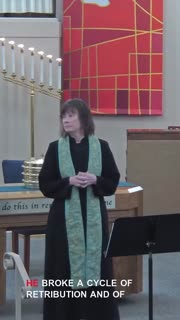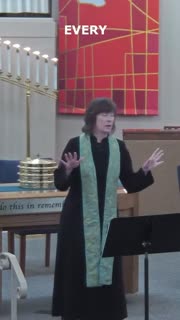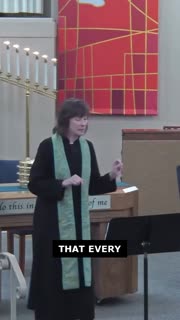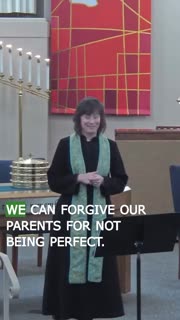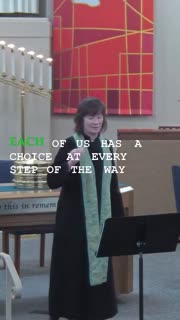Choosing Mercy: Lessons from Joseph's Journey
Summary
### Summary
Today, we delved into the story of Joseph from the book of Genesis, exploring the complex dynamics within his family and the profound lessons we can draw from his life. Joseph, the 11th of 12 sons, was favored by his father Jacob, which incited jealousy and hatred among his brothers. This favoritism, coupled with Joseph's dreams of dominance, led his brothers to plot against him, ultimately selling him into slavery. Despite these adversities, Joseph's journey in Egypt—from being a slave to becoming a powerful figure under Pharaoh—demonstrates God's providence and the power of forgiveness.
Joseph's story is a testament to the importance of breaking cycles of retribution and choosing mercy over vengeance. When his brothers came to Egypt seeking food during a famine, Joseph had the power to exact revenge but chose instead to forgive and help them. This act of grace not only saved his family but also set a precedent for mercy and reconciliation.
The narrative also highlights the importance of individual actions in the face of systemic issues. Reuben, Joseph's eldest brother, intervened to save Joseph's life, showing that even small acts of righteousness can have significant impacts. Joseph's ultimate forgiveness of his brothers underscores the Christian call to repay evil with good, reflecting God's love and mercy.
Forgiveness, however, is not about becoming a doormat or ignoring justice. Joseph maintained his dignity and position while extending mercy, illustrating that true forgiveness involves holding one's ground while choosing kindness. This balance is crucial in our daily lives as we navigate relationships and conflicts.
In essence, Joseph's story encourages us to choose the path of mercy, to see every person as a beloved child of God, and to break cycles of hatred and vengeance. It challenges us to act with kindness and mercy, even when wronged, and to trust in God's greater plan.
### Key Takeaways
1. The Power of Forgiveness: Joseph's decision to forgive his brothers, despite their betrayal, highlights the transformative power of forgiveness. It shows that forgiveness is not about forgetting the wrongs done but about choosing mercy over vengeance, which can lead to healing and reconciliation. [12:47]
2. Breaking Cycles of Retribution: Joseph's story teaches us the importance of breaking cycles of retribution. By choosing not to repay evil with evil, Joseph set a powerful example of how mercy can disrupt patterns of violence and hatred, leading to a more just and compassionate world. [16:17]
3. Individual Actions Matter: Reuben's intervention to save Joseph's life, though seemingly small, had a significant impact. This reminds us that our individual actions, no matter how minor they seem, can contribute to larger changes and can be pivotal in God's plan. [14:34]
4. Balancing Mercy and Justice: Forgiveness does not mean becoming a doormat. Joseph maintained his dignity and position while extending mercy to his brothers. This balance is crucial, as it allows us to act with kindness without compromising our own worth and justice. [17:45]
5. Seeing the Divine in Everyone: Recognizing that every person we meet is a beloved child of God, despite their flaws, helps us to act with compassion and mercy. This perspective encourages us to choose kindness and to break cycles of anger and hatred in our daily interactions. [19:05]
### YouTube Chapters
[0:00] - Welcome
[01:15] - Introduction to Joseph's Story
[02:17] - Joseph's Dreams and Brothers' Jealousy
[03:20] - Family Dynamics and Favoritism
[04:55] - Brothers' Plot Against Joseph
[05:43] - Reuben's Intervention
[06:32] - Joseph Sold into Slavery
[07:29] - Joseph in Egypt and Potiphar's House
[08:19] - Pharaoh's Dreams and Joseph's Rise
[09:11] - Famine and Brothers' Journey to Egypt
[10:00] - Family Reunion and Reconciliation
[10:52] - Jacob's Blessings and Family Patterns
[11:51] - Brothers' Fear and Joseph's Forgiveness
[13:36] - Reflection on Family Dynamics
[14:34] - Reuben's Righteous Act
[16:17] - Breaking Cycles of Retribution
[17:13] - Disclaimer on Forgiveness
[19:05] - Seeing the Divine in Everyone
[20:59] - Everyday Choices and Kindness
[22:40] - Conclusion and Call to Action
Study Guide
### Bible Study Discussion Guide
#### Bible Reading
1. Genesis 37:1-11 - Joseph's Dreams and His Brothers' Jealousy
2. Genesis 45:1-15 - Joseph Reveals Himself to His Brothers and Forgives Them
3. Genesis 50:15-21 - Joseph Reassures His Brothers
#### Observation Questions
1. What were the reasons behind Joseph's brothers' jealousy and hatred towards him? ([02:17])
2. How did Reuben intervene to save Joseph's life, and what was his plan? ([05:43])
3. Describe the moment when Joseph revealed his identity to his brothers and his reaction to their fear. ([12:47])
4. What was Joseph's response to his brothers' plea for forgiveness after their father's death? ([12:47])
#### Interpretation Questions
1. How does Joseph's decision to forgive his brothers reflect the Christian call to repay evil with good? ([16:17])
2. In what ways did Joseph balance mercy and justice when dealing with his brothers? ([17:45])
3. How does Reuben's small act of righteousness contribute to the larger narrative of Joseph's story? ([14:34])
4. What does Joseph's story teach us about seeing the divine in everyone, even those who have wronged us? ([19:05])
#### Application Questions
1. Reflect on a time when you were wronged. How did you respond, and how might Joseph's example of forgiveness inspire you to act differently in the future? ([16:17])
2. Think about a situation where you had the power to exact revenge but chose mercy instead. How did that decision impact you and others involved? ([12:47])
3. Reuben's intervention was a small act with significant consequences. Can you recall a small act of kindness or righteousness you performed that had a larger impact than you expected? ([14:34])
4. Joseph maintained his dignity while extending mercy. How can you balance mercy and justice in your own relationships and conflicts? ([17:45])
5. Consider someone in your life who has wronged you. How can you begin to see them as a beloved child of God and act with compassion and mercy towards them? ([19:05])
6. Joseph's story challenges us to break cycles of retribution. What are some practical steps you can take to break cycles of anger and hatred in your daily interactions? ([16:17])
7. Reflect on the importance of individual actions in the face of systemic issues. How can you contribute to positive change in your community through small acts of righteousness? ([14:34])
Devotional
Day 1: The Transformative Power of Forgiveness
Forgiveness is a powerful act that can transform relationships and bring healing. Joseph's decision to forgive his brothers, despite their betrayal, is a profound example of this. Forgiveness is not about forgetting the wrongs done but about choosing mercy over vengeance. This choice can lead to reconciliation and healing, not just for the one who forgives but also for those who are forgiven. Joseph's act of forgiveness saved his family and set a precedent for mercy and reconciliation.
In our own lives, we are often faced with situations where we can choose to hold onto grudges or extend forgiveness. By choosing to forgive, we open the door to healing and transformation. This does not mean that we ignore justice or become doormats, but rather that we choose to act with mercy and compassion, reflecting God's love and grace. [12:47]
Genesis 50:20-21 (ESV): "As for you, you meant evil against me, but God meant it for good, to bring it about that many people should be kept alive, as they are today. So do not fear; I will provide for you and your little ones.” Thus he comforted them and spoke kindly to them."
Reflection: Think of someone in your life you need to forgive. Can you ask God to help you begin to extend His love and forgiveness to them today?
Day 2: Breaking Cycles of Retribution
Joseph's story teaches us the importance of breaking cycles of retribution. When his brothers came to Egypt seeking food during a famine, Joseph had the power to exact revenge but chose instead to forgive and help them. By choosing not to repay evil with evil, Joseph set a powerful example of how mercy can disrupt patterns of violence and hatred. This act of grace not only saved his family but also demonstrated the power of mercy to create a more just and compassionate world.
In our daily lives, we often encounter situations where we are tempted to respond to wrongs with retribution. However, by choosing mercy over vengeance, we can break these cycles and promote peace and reconciliation. This does not mean ignoring justice but rather choosing to act with compassion and understanding, reflecting God's love and mercy. [16:17]
Romans 12:19-21 (ESV): "Beloved, never avenge yourselves, but leave it to the wrath of God, for it is written, 'Vengeance is mine, I will repay, says the Lord.' To the contrary, 'if your enemy is hungry, feed him; if he is thirsty, give him something to drink; for by so doing you will heap burning coals on his head.' Do not be overcome by evil, but overcome evil with good."
Reflection: Think of a situation where you are tempted to seek retribution. How can you choose mercy and break the cycle of retribution today?
Day 3: The Impact of Individual Actions
Reuben's intervention to save Joseph's life, though seemingly small, had a significant impact. This reminds us that our individual actions, no matter how minor they seem, can contribute to larger changes and can be pivotal in God's plan. Reuben's act of righteousness, though it did not completely save Joseph from harm, set the stage for Joseph's eventual rise to power and the salvation of his family.
In our own lives, we may feel that our actions are insignificant in the grand scheme of things. However, even small acts of kindness and righteousness can have far-reaching effects. By choosing to act with integrity and compassion, we can contribute to God's greater plan and make a positive impact on the world around us. [14:34]
Galatians 6:9 (ESV): "And let us not grow weary of doing good, for in due season we will reap, if we do not give up."
Reflection: Think of a small act of kindness or righteousness you can do today. How might this action contribute to a larger positive change?
Day 4: Balancing Mercy and Justice
Forgiveness does not mean becoming a doormat. Joseph maintained his dignity and position while extending mercy to his brothers. This balance is crucial, as it allows us to act with kindness without compromising our own worth and justice. Joseph's story illustrates that true forgiveness involves holding one's ground while choosing kindness. This balance is essential in our daily lives as we navigate relationships and conflicts.
In our interactions with others, it is important to find a balance between mercy and justice. We can extend forgiveness and compassion while still maintaining our own dignity and standing up for what is right. This balance allows us to act with integrity and reflect God's love and justice in our lives. [17:45]
Micah 6:8 (ESV): "He has told you, O man, what is good; and what does the Lord require of you but to do justice, and to love kindness, and to walk humbly with your God?"
Reflection: Think of a conflict or relationship where you need to balance mercy and justice. How can you extend forgiveness while maintaining your dignity and standing up for what is right?
Day 5: Seeing the Divine in Everyone
Recognizing that every person we meet is a beloved child of God, despite their flaws, helps us to act with compassion and mercy. This perspective encourages us to choose kindness and to break cycles of anger and hatred in our daily interactions. Joseph's story challenges us to see the divine in everyone, even those who have wronged us, and to act with love and mercy.
In our daily lives, we often encounter people who are difficult to love or who have wronged us. By choosing to see them as beloved children of God, we can act with compassion and break cycles of anger and hatred. This perspective helps us to reflect God's love and mercy in our interactions with others and to promote peace and reconciliation. [19:05]
1 John 4:20-21 (ESV): "If anyone says, 'I love God,' and hates his brother, he is a liar; for he who does not love his brother whom he has seen cannot love God whom he has not seen. And this commandment we have from him: whoever loves God must also love his brother."
Reflection: Think of someone who is difficult for you to love. How can you begin to see them as a beloved child of God and act with compassion towards them today?
Quotes
1. "Joseph's brothers were annoyed and jealous and kind of rightfully so, it sounds like. And it's understandable. Jacob was playing favorites. They were being pitted one against another by a parent who had some pretty serious shortcomings of his own. The brothers had seen the story before. They could see, they could see the handwriting on the wall. Reuben probably had the most to lose in all of this. He was the eldest son in most of everywhere. The eldest son is the one who inherits the most property. But something, something in him rung and he said, you know, that's not right." [13:36] (51 seconds)
2. "He broke a cycle of retribution and of violence and of vengeance and grudges. He knew they intended him harm, but he had been cared for. He had found his way by walking in God's path, doing the next right things in front of him, treating people fairly and nicely, mercy, and it worked out for him. He refused to repay evil with more evil. He repaid it with good." [16:17] (41 seconds)
3. "Every time I start talking about forgiveness, I have to stop and do a little bit of a disclaimer. Every time, and I will never not do this, this is not just blind forgive and forget. This is not a victim being told that they need to take their abuser, at their word, and take them right back and put themselves right back into the same power structures that were abusive in the first place. This is not the same thing. Joseph did not say, oh, you're my older brothers. You deserve more than me and give them everything that he owned. That's not what he did. He did not elevate people who had done him evil above himself. He did not become a doormat." [17:13] (48 seconds)
4. "When we remember that every person we meet and including the person in the mirror that we see each day is both beloved and broken. Some of us are so broken. Not one of us is perfect. We have all made wrong decisions. We have all fallen short and yet we are still all reflections of the divine. And we have choices. Each day we have choices. We can choose the better path. We can choose the kinder path. We can choose the more merciful path. Or we can choose divisiveness and anger and hatred and plotting." [19:05] (52 seconds)
5. "We can forgive our parents for not being perfect. We can forgive our kids for making dumb choices along the way. We can care for the person who is hungry or houseless or thirsty, no matter the cause of their issues. We can let go of pettiness and judgment. We can keep up with our calling, and divisiveness, and envy. We can choose to take a breath and bless the person in front of us. We can break the cycle. We can break the cycle. We may not know that it has any effect in the moment. It may feel like it's just, as Ecclesiastos would call it, vanity. Just in vain. But you don't know. No, you don't know how it's going to happen down the road." [22:40] (63 seconds)
6. "Each of us has a choice at every step of the way to choose kindness, to choose mercy, to choose the God path. We can break the cycle. And, yep, it's still challenging. Right up there with the whole selling your money in or selling everything you own and give the money to the poor part." [22:40] (30 seconds)
